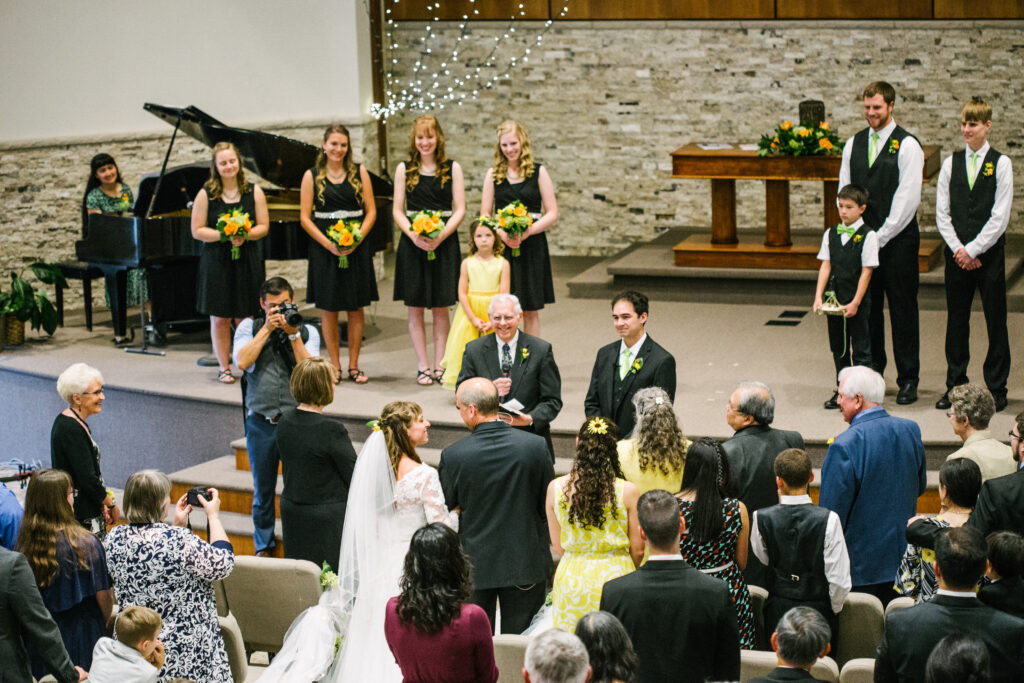Marriage is a beautiful journey (we like to refer to it as an adventure) of two individuals coming together to share their lives. But just like any relationship, it also comes with its challenges. One of the most common challenges is dealing with differences in how each spouse approaches tasks and situations.
 We discovered this even before we got married since we were friends for several years, but we both have slight differences in the ways that we do many things. It doesn’t help either that we both have strong firstborn personalities, so we both know that our way of doing things is the best way 😉
We discovered this even before we got married since we were friends for several years, but we both have slight differences in the ways that we do many things. It doesn’t help either that we both have strong firstborn personalities, so we both know that our way of doing things is the best way 😉
When your spouse does something differently than how you prefer, it can be tempting to try to change them. This is an ongoing challenge for me, especially.
I have learned, however, that sometimes it can be better to stay quiet and embrace these differences with grace. In view of eternity, some differences are honestly not that big of a deal, like the fact that Alyssa handwashes dishes with the faucet running while I only turn on the water once I’m ready to rinse the dishes.
There often is nothing to gain by asking your spouse to do something differently just because you prefer it that way (and Alyssa washes our dishes most of the time anyway, so she should get to do it the way she wants to!).
How to Embrace Differences with Grace
The Bible offers wisdom on how to handle differences and conflicts in various situations. One such passage is Proverbs 17:27-28: “He who has knowledge spares his words, and a man of understanding is of a calm spirit. Even a fool is counted wise when he holds his peace; when he shuts his lips, he is considered perceptive.”
Sometimes it’s better not to say anything! There is value in restraint and wisdom in sometimes remaining silent.
Why start a conflict when you could instead accept a small difference and maintain peace and goodwill?
Here are a few advantages of keeping quiet instead of voicing certain preferences.
- You Foster Peace and Harmony
By choosing not to voice every disagreement, you help to maintain a peaceful and harmonious home environment. Even constructive criticism on a regular basis can create tension and conflict, whereas patience and acceptance can strengthen your relationship. - You Encourage Growth and Independence
Allowing your spouse to handle tasks in their way can encourage their personal growth and independence. It shows trust and respect for their abilities and decisions. - You Build Mutual Respect
When you accept your spouse’s differences, you build a foundation of mutual respect. This respect fosters a deeper emotional connection and strengthens the bond between you.
Of course, there are times when you should speak up and have a kind-hearted discussion about some differences, especially if those differences significantly impact either of you spiritually, mentally, physically, or financially.
Some of these issues, if not addressed, can lead to misunderstandings or resentment over time. It’s important to find a balance between being patient and addressing significant concerns.
Consistently staying silent can stifle healthy communication. It is crucial to ensure that both partners feel heard and understood in the relationship. You need to learn how to differentiate between matters that need to be discussed and those that are insignificant.
In some cases, what might seem like a minor difference could be a symptom of a larger issue. Ignoring it could lead to more significant problems down the line. Again, discernment must be exercised. The example I gave above about washing the dishes is not a symptom of a larger issue, and it doesn’t impact either of us in a negative way.
When to Speak Up with Grace
While embracing differences with grace is important, there are situations where it is better to speak up…and still use grace.
- Matters of Principle or Values
If the difference touches on core values or principles, it is essential to discuss it. Open communication about fundamental beliefs is crucial for a healthy relationship. Almost anything related to raising kids should be discussed. - Impact on Well-Being
If your spouse’s actions are affecting their well-being, your well-being, or the well-being of your family, it is necessary to address the issue. But do some soul-searching and praying to make sure you aren’t being selfish! - Repeated Patterns
If a particular behavior is a recurring source of conflict or stress, it might be time to have a constructive conversation about it. If you tend to get stressed easily over inconsequential things, though, you might want to get additional help and counsel for that.
When speaking up, it’s important to do so with love and respect. Colossians 3:12-14 advises, “Therefore, as the elect of God, holy and beloved, put on tender mercies, kindness, humility, meekness, longsuffering; bearing with one another, and forgiving one another, if anyone has a complaint against another; even as Christ forgave you, so you also must do. But above all these things put on love, which is the bond of perfection.”
This passage reminds is addressed to the church, but if you and your spouse are both born-again Christians, you are a brother and sister in Christ and should treat each other as such. Approach your spouse with kindness and love, aiming to build them up rather than to get your way.
Summary
Learning to embrace differences with patience and understanding can foster peace, respect, and deeper connection. This is true of all relationships, but especially in marriage.
More and more often, I have found that I just have a lot of preferences, and just because my wife does something differently does not mean it’s wrong! There are usually multiple good ways to do things. Therefore, expressing my preference is often not necessary.
Remember, however, that there are also legitimate times to speak up and address significant issues. Do not come to these conclusions quickly, though, and try to approach these situations from a biblical perspective.
Embrace the adventure of growing together, accepting your differences, and always striving for unity and love!
Do you tend to express your opinions and preferences more often than necessary in your relationships?
 One week ago we celebrated our 5-year anniversary, and, more than ever, we want to see each other every day.
One week ago we celebrated our 5-year anniversary, and, more than ever, we want to see each other every day. But right now while they are just little guys, we want to spend every day with them, and we want to spend every day with each other as well.
But right now while they are just little guys, we want to spend every day with them, and we want to spend every day with each other as well.
 God has blessed me with many amazing pastors- over a dozen of them. I will not list them here, but the people close to me have a good idea of who most of these men are.
God has blessed me with many amazing pastors- over a dozen of them. I will not list them here, but the people close to me have a good idea of who most of these men are. When I was a child, he spent so much time with me when we visited. He took me on his paper route, he brought me into the ditches to pick up pop cans, he taught me how to catch night crawlers, he took me fishing, he showed me his trapping route, and he took me up north to sell the skins from his trapping.
When I was a child, he spent so much time with me when we visited. He took me on his paper route, he brought me into the ditches to pick up pop cans, he taught me how to catch night crawlers, he took me fishing, he showed me his trapping route, and he took me up north to sell the skins from his trapping.